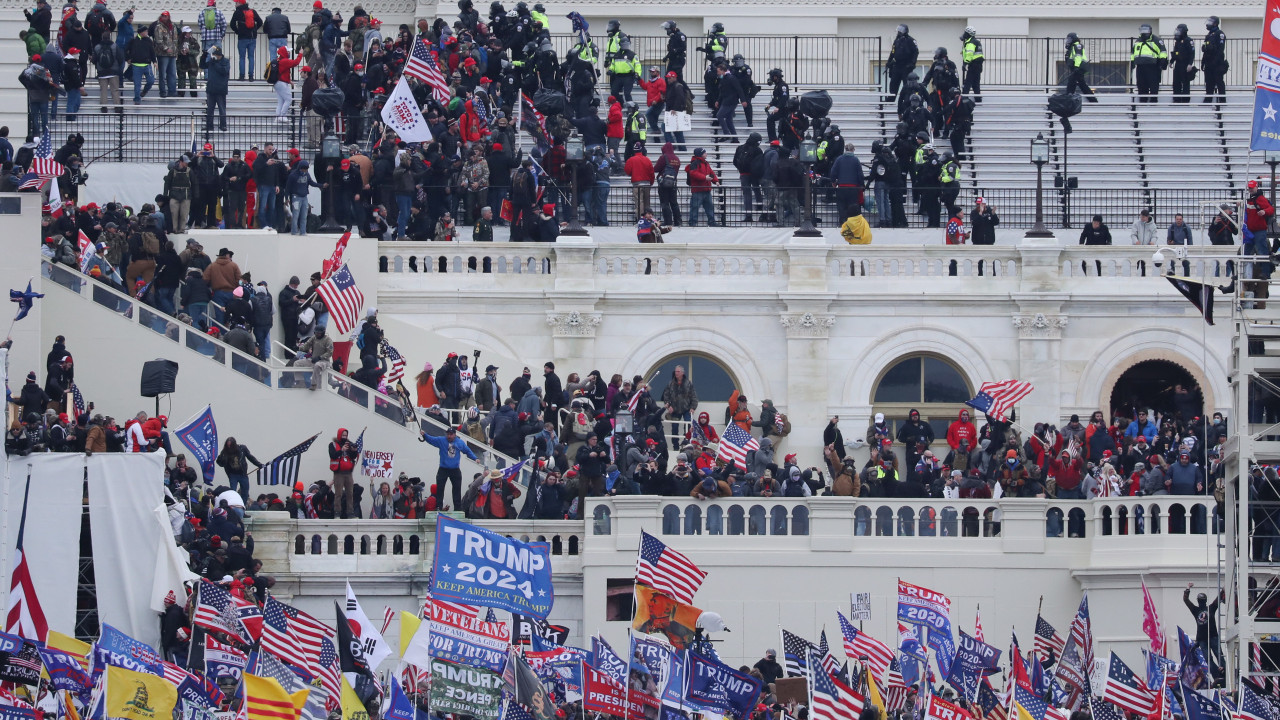
TThree years after the attempted insurrection, whose violence resulted in several deaths, the federal investigative agency FBI continues to ask the public for help in identifying dozens of individuals involved in the assault, including the location of Evan Neumann, Jonathan Daniel Pollock and Adam Villarreal.
The most recent status report published by the office of the District of Columbia Attorney General, Matthew M. Graves, estimates the damage caused by the robbery at 2.8 million dollars.
It is already the largest investigation ever in the history of the Department of Justice, which has still not been able to identify those responsible for placing homemade bombs outside the offices of the Democratic and Republican party committees, on the eve of the invasion.
Sentences handed down range from home detention to long prison terms. Enrique Tarrio, former leader of the extremist group Proud Boys, was sentenced to 22 years; Stewart Rhodes, founder of the Oath Keepers militia, received 18 years; Joseph Biggs, former leader of the Proud Boys, was sentenced to 17 years. Several others received between 12 and 15 years.
Still, the electorate’s positions on assault and prosecution are more polarized than ever.
After a period in which a solid majority of voters condemned the invasion and considered it a threat to democracy, sympathy among a portion of the electorate for the attackers and Donald Trump has increased.
This is what a new survey by the Washington Post and the University of Maryland shows, according to which only 53% of respondents hold Trump responsible for the attack. This percentage was 60% in 2021.
The survey also reveals that 25% of respondents believe that it was the FBI that instigated the attack on the Capitol, after years of disinformation by several far-right media outlets. The percentage is higher (39%) among those who say they mainly watch Fox News and even higher (44%) among Republican voters.
Seven in ten Republicans believe that the reaction to the invasion is exaggerated and the time has come to put the case behind them.
This scenario is unlikely considering that, in 2024, the focus will be on Donald Trump’s two criminal trials related to the insurrection and the attempt to subvert the results of the 2020 presidential election.
The Justice Department accuses Trump of four crimes: conspiracy to defraud the United States; conspiracy to violate civil rights; conspiracy to obstruct certification of election results; and obstructing the certification of election results.
This case is federal, the result of the investigation by Special Prosecutor Jack Smith and will be conducted in the District of Columbia. Judge Tanya Chutkan set the trial for March 4, but paused the proceedings while the D.C. appeals court considers Trump’s immunity argument because he was president when these events occurred.
The second case is statewide and takes place in Georgia, with an investigation led by Attorney General Fani Willis. Trump faces 13 charges related to the attempt to overturn Biden’s victory in the state of Georgia and send fake electors to the Electoral College vote.
The prosecution proposed the date of August 5, 2024 for the start of the trial. Contrary to what happens in federal cases, if Trump is convicted he cannot pardon himself if he returns to the White House, nor receive a pardon from the Georgia government. Pardons are decided by an independent body.
Read Also: Demonstrations and vigils mark the 3rd anniversary of the assault on the Capitol
All News. By the Minute.
Eighth consecutive year Consumer Choice for Online Press.
Download our free App.
Source: https://www.noticiasaominuto.com/mundo/2474557/julgamentos-e-investigacoes-da-invasao-do-capitolio-em-2021-continuam


